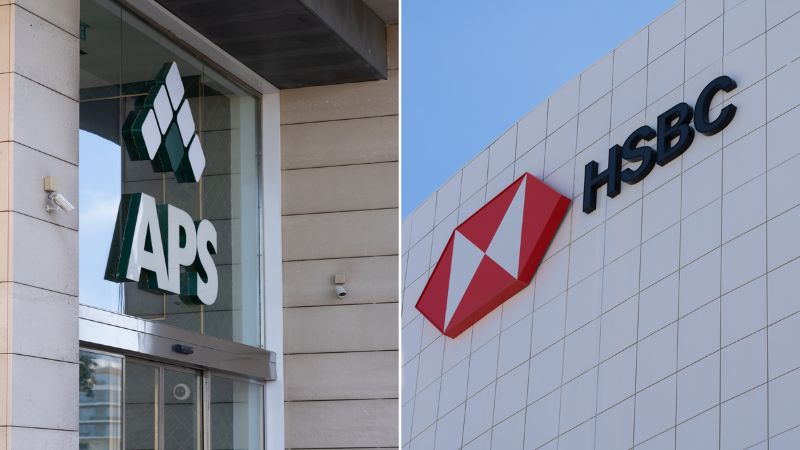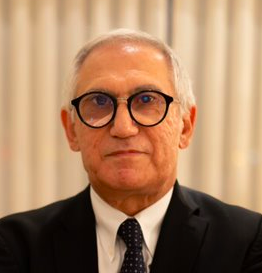Investors, especially those in the Maltese capital market, should keep their eyes wide open because the sea in which they swim is infested with sharks, and there is little external protection.
Equity investors in HSBC shares and those in APS will bear the brunt of the manipulation of market prices by unknown persons and the breach of anti-market abuse rules that have recently taken the local equity market by storm.
Rumours of a deal already in the bag, indeed that even a friendly cash-and-carry forced sale price had been agreed surfaced with full force.
This, together with the failure to issue timely, precise and complete company announcements when they should have, compounded subsequently by the actual issue of company announcements that were so nebulous that they raised more questions than they answered, has all resulted in clear market manipulation causing a false market to occur in HSBC and APS share prices in these last weeks.
Your guess of who spread the rumour is as good as mine. However the effect is clearly visible in a strong appreciation in the price of APS shares and a free fall in that of HSBC.
This strong volatility in an otherwise slumbering equity market has resulted in the impoverishment of HSBC shareholders to the tune no less than €100 million in reduced market capitalisation value.
This downfall is not the result of some objective event or calamity. No onset of COVID, no terrorism event of Twin Tower magnitude or some major oil spill such as MV Erica or Exxon Valdez affecting our local Mediterranean bays and causing havoc to our mainstay in tourism.
The cause of our recent price earthquake is artificial, and it finds its root in the failure of capital market players to adhere to and fulfil their legal and market obligations to keep the market fully informed of all unpublished insider price-sensitive events.
Likewise, it is their responsibility to respond immediately and faithfully to market rumours by confirming them or denying them in no uncertain manner.
The MFSA, in its capacity as listing authority, is no less a culprit in all this mess. It has been conspicuous by its absence from fulfilling its role to ensure that market abuse is investigated and suppressed and appropriate and timely sanctions are applied.
MFSA is the national competent authority mandated to ensure that the robust EU anti-market abuse legislation is adhered to in practice – no more, no less.
Of course, the victims are, as usual, small shareholders. Principal among these are thousands of pensioners and ex-Mid-Med colleagues who are heavily invested in HSBC Malta shares. These shares will have suffered a fall in value in excess of 20% and may not recover to their pre-rumour level.
APS shareholders could also end up being victims of this price manipulation by unknown persons. This is because APS is required to launch a share rights issue to shore up its capital ratio, the lowest of the main domestic banks.
The rights issue price will be inevitably determined based on recent artificially high prices of APS itself, and existing shareholders will, therefore, be made to pay for their exercise of the rights issue for new shares at higher prices than they would otherwise have without this market manipulation.
This, by pure coincidence, will naturally benefit APS Bank.
Meanwhile, to square the circle of this Maltese tragi-comedy, the Malta Stock Exchange also played its part, and this revolved around its chairman, Joseph Portelli.
Portelli has had the audacity and the naivety, no doubt caused by his hubris, to recently start posing as a journalist.
He prides himself on hosting regular ‘Executive Spotlight’ interviews with CEOs of listed companies without realising the dangers of such a practice in relation to listed companies that should relay facts to the investing public through formal and surgical company announcements rather than staged interviews.
Portelli clearly does not understand that the journalist’s role is not his and that he should be ensuring that investors on the Exchange get a fair and transparent deal.
So, earlier this month and approximately at the same time that the manipulation in the prices of HSBC and APS was raging, Portelli posted his interview with HSBC CEO Geoffrey Ficthe on the Malta Stock Exchange website.
Fichte is the same person who, only a few months ago, said he could not assure us strongly enough that HSBC is here for the long haul and that the shareholders have nothing to worry about.
In his interviews, Malta Stock Exchange Chairman Joseph Portelli tries to come across as the chairman of NASDAQ, even adopting an American accent. But his questioning leaves much to be desired.
In a pathetic interview interspersed with repeated lauding of government economic policies, he proceeds to ask the mildest and most predictable questions in a staged interview meant only to provide a ready platform for the HSBC CEO to promote the bank with promises of massive investment in its human resources and artificial intelligence and taking the bank in Malta to the front of the worldwide banking industry.
And then Portelli indeed misses the elephant in the room and fails to ask the crucial question of how this dovetails with the discovery, barely a few days later, that HSBC London had long decided to exit Malta and had been around all the financial capitals of the world trying to find a sale until it finally settled into a done deal with the Church’s bank, APS.
The wake-up call from all this for all is that the public must be attentive. It must send the message home to HSBC London that however enthusiastic it may be to exit Malta, this must not be done by secret negotiations leading to some fire sale agreement.
While attractive to the buyer, whether APS or whichever other bank, local or overseas, it would be a giveaway price when compared to a price derived from arm’s length non-distressed market conditions.
This will harm investors, particularly pensioners. Investors must be on guard, with eyes wide open.
Paul Bonello is managing director of Finco Treasury Management Ltd, but he writes this opinion piece from his personal point of view.














Well said, not even the financial authorities – MfSA and the MsE are functioning!
Bravo.
Thank God that Malta has a professional like you that voices out his concerns for the rights of the minority shareholders. The absence of the small shareholders association is evident.
An excellent write up which highlights the vulnerability of investors in the local market, with calls for greater transparency and accountability from both market players and regulators to prevent further harm to small shareholders.
Effective corporate governance requires active oversight from the company’s board of directors to ensure management is acting in the shareholders’ best interests. Without strong governance, companies
risk losing investor confidence and facing long-term reputational damage. May we remind that the board directors of Hsbc Malta are personally liable for any misdeeds and please rest assured that a special resolution is soon going to kick start the request for an EGM.
The HSBC shares should have been suspended immediately following the announcement.
Aps might have a recurrence of what happened during Bishop Gerrad’s business deal with the American millionaire years back.
Is there anything working properly on this island?? I gave up!
No!
“ It must send the message home to HSBC London that however enthusiastic it may be to exit Malta, this must not be done by secret negotiations leading to some fire sale agreement.” There is the ECB to see to that.